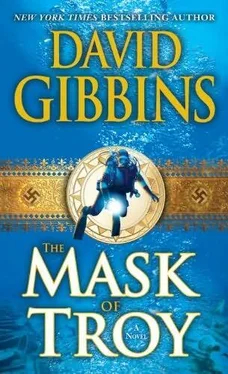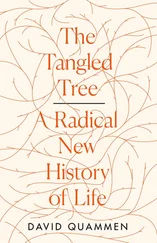David Gibbins - The Mask of Troy
Здесь есть возможность читать онлайн «David Gibbins - The Mask of Troy» весь текст электронной книги совершенно бесплатно (целиком полную версию без сокращений). В некоторых случаях можно слушать аудио, скачать через торрент в формате fb2 и присутствует краткое содержание. Жанр: Триллер, на английском языке. Описание произведения, (предисловие) а так же отзывы посетителей доступны на портале библиотеки ЛибКат.
- Название:The Mask of Troy
- Автор:
- Жанр:
- Год:неизвестен
- ISBN:нет данных
- Рейтинг книги:3 / 5. Голосов: 1
-
Избранное:Добавить в избранное
- Отзывы:
-
Ваша оценка:
- 60
- 1
- 2
- 3
- 4
- 5
The Mask of Troy: краткое содержание, описание и аннотация
Предлагаем к чтению аннотацию, описание, краткое содержание или предисловие (зависит от того, что написал сам автор книги «The Mask of Troy»). Если вы не нашли необходимую информацию о книге — напишите в комментариях, мы постараемся отыскать её.
The Mask of Troy — читать онлайн бесплатно полную книгу (весь текст) целиком
Ниже представлен текст книги, разбитый по страницам. Система сохранения места последней прочитанной страницы, позволяет с удобством читать онлайн бесплатно книгу «The Mask of Troy», без необходимости каждый раз заново искать на чём Вы остановились. Поставьте закладку, и сможете в любой момент перейти на страницу, на которой закончили чтение.
Интервал:
Закладка:
‘There is a weakness in your theory,’ Bismarck rumbled. ‘A weakness we all know from our own age. Men hungry for power will form alliances, often to prosecute war, not to prevent it. And surely that is what we see in Homer. Agamemnon leads a huge alliance of all the Greeks.’
Schliemann paused. ‘When I studied at the Sorbonne before embarking on my great quest for Troy, I had a thirst to know what the living world might tell about my long-dead heroes. I travelled to the islands of the Pacific, and observed the native peoples. Where their own limitation of technology and manpower prevented them from defeating each other, they ritualized their standoffs, in an entente cordiale. They exchanged gifts, women, cemented friendships. They held secret ceremonies in which the chieftains would confer, at one place recognized by all as a paramount meeting place. And whenever power was unbalanced, when a new technology was introduced, gunpowder, for example, when one chieftain had a brief ascendancy before the others had the technology as well, his first objective would be to conquer that paramount place where power had always been maintained, a balance of power that had kept the peace.’
‘You speak in metaphor of Troy, I believe,’ Gladstone murmured. ‘You speak of Troy, and you speak of this chamber before us. Am I correct?’
Schliemann stared hard at them. ‘Herr Bismarck spoke of an alliance. What of this? Agamemnon, already power-hungry in his own land, straining at the leashes that keep him in his citadel of Mycenae, learns of a new technology: the technology of iron. It is not yet perfected, but he sets his smiths to work. He knows he has no time to lose before others have it too. He gambles, and embarks on his path to war before the weapons are ready. He uses all his kinship ties and his strength and he summons an alliance, one that casts its net across the Mycenaean world. They are going to the place Agamemnon has gone to before in peace, as a broker of power, as a member of a council that kept war at bay. Yes, Mr Gladstone: they go to Troy. The alliance provides the manpower to lay siege to the citadel, but not yet the weapons. On the island of Tenedos, Agamemnon’s smiths work day and night, experimenting, testing. For nine years, if we are to believe Homer, his army fought in the traditional way, individual duels below the walls of Troy, Achilles and Hector, Patroclus and Diomedes. For nine years Agamemnon bided his time, while the forges hissed and burned, while the technology he had secretly acquired was honed and perfected. One day, let us surmise, in that ninth year, some master smith discovered a way to forge a metal that was no longer brittle, iron that could be stronger than bronze. Suddenly the stage was set. The world groaned. Agamemnon unleashed hell. A thousand iron arrows flew into the walls of Troy. Then ten thousand arrows. Then ten thousand more. Forges, gentlemen, forges on the island of Tenedos, forges that once had wrought the finery of heroes, helmets and breastplates and spears of the finest bronze, burned and blasted day and night to produce these new weapons, weapons that overwhelmed Troy like a tidal wave, that unleashed the bonds on what men could do.’
‘And all of this because a young Trojan prince kidnapped a Greek queen named Helen?’ Hoar said.
‘The spark of war,’ Schliemann said. ‘A spark created by Agamemnon, perhaps. A subterfuge. In a world where high-status women were part of the web of alliances, it could have been enough.’
‘Some damned foolish thing in the Balkans,’ Bismarck grumbled.
‘What did you say?’ Gladstone demanded.
‘What I have said to the new kaiser, seemingly to no avail. I said to him that one day the great European war will come out of some damned foolish thing in the Balkans. That will be our Helen of Troy.’
‘You see?’ Schliemann exclaimed. ‘We speak of a coming war as if it is inevitable. That is why I have brought you here tonight, gentlemen.’
‘What would you have us do?’ Hoar asked.
Schliemann pulled a little white book from his pocket. ‘In Homer, the gods appear to shape destiny, and men are mere pawns. But that is because, before Agamemnon, the world is presented as an unchanging one, and thus one in which men appear to have no power. I believe the truth was very different. Just as it was an individual, Agamemnon, who brought calamitous war, so it was individuals before him, generation after generation of kings, who kept the balance of power, kept the peace. They were not pawns. It was their free will to shape history. We know some of their names. Atreus, father of Agamemnon. Minos, King of Knossos. Priam, King of Troy, an old king at the time of the siege, who, let us surmise, had seen Agamemnon as a young prince, had nurtured him perhaps, but then had seen something in his eyes, that smouldering fire that makes a prince an Alexander or a Genghis Khan, that only needs an extra spark to ignite and raze all before it.’ He held up the book. ‘Thomas Carlyle, our great political theorist, on how history is shaped by individuals. I have been reading him this very day. I look to our world, gentlemen, and I see a world where the power of the individual is under threat, with calamitous consequences. It is the individual who has morality, not the crowd.’
Hoar put up his hand. ‘I speak as a citizen of the United States of America, where individual freedom, the rights of the individual, is enshrined in the Constitution. I look to Europe, and I fear greatly for the future. Mass movements, volk movements, begin on a high ideal, on ideals of social justice, but they submerge the individual, and thus the voice of common morality.’
Schliemann nodded. ‘We live at a time when the voice of the individual is needed as at no other time in history. We stand, gentlemen, we four, in front of history, able to shape it, able to throw off inevitability, to shake off those who would have us believe that fate is not ours to control, to show that men left to their own devices are not foredoomed to destruction and war.’
‘And we stand at a time of changing technology,’ Gladstone said. ‘That is your point. That is why that iron arrowhead is so important.’
‘The age of bronze ended with Agamemnon. The age of iron is about to end for us. We live in terrifying times. Contemplate the changes in our own lifespans, gentlemen. From muskets to machine guns. From black powder to nitroglycerine. From ships of the line to ironclads. From muzzle-loading cannon to giant breech-loading guns, capable of lobbing a shell fifteen miles. Veritable doomsday weapons. And men will fly, gentlemen. With my own eyes I have seen the “monoplane” of Monsieur Felix du Temple. Powered flight is a certainty. Men will fly. There are fearsome possibilities, gentlemen. Fearsome possibilities. The modern alchemy of science will produce wonders, but also horrors. Human guile may reawaken the oldest nightmare of them all. I speak of the plague. The plague. It may be the black death, or cholera, or a new deadly smallpox, or some frightful dormant virulence. If some necromancer can harness disease as a weapon, then truly, Mr Gladstone, the Christian God will have forsaken us, all of the gods will have forsaken us, and we will find no redemption.’
‘Does anything give you hope?’ Hoar asked.
‘You three give me hope. In the Bronze Age, in the world of Homer, we are to believe it was the champions who were the heroes, Achilles and Hector and the others. But they were not the true heroes. The heroes were the kings, those who came before Agamemnon. Let us be modern-day kings. Let us be modern-day heroes. Let us ride above the tide of history. Let us prevent another rape of Troy.’
‘You spoke, Mr Schliemann, of finding a key,’ Hoar said. ‘You spoke metaphorically, I surmise?’
Читать дальшеИнтервал:
Закладка:
Похожие книги на «The Mask of Troy»
Представляем Вашему вниманию похожие книги на «The Mask of Troy» списком для выбора. Мы отобрали схожую по названию и смыслу литературу в надежде предоставить читателям больше вариантов отыскать новые, интересные, ещё непрочитанные произведения.
Обсуждение, отзывы о книге «The Mask of Troy» и просто собственные мнения читателей. Оставьте ваши комментарии, напишите, что Вы думаете о произведении, его смысле или главных героях. Укажите что конкретно понравилось, а что нет, и почему Вы так считаете.












